Search
Did you mean: Derbent?
Search Results
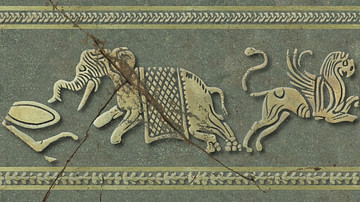
Article
Elephants in Hellenistic History & Art
Elephants were thought of as fierce and frightful monsters in antiquity, very real though rarely seen until the Hellenistic period. They were deployed on the battlefield to strike terror into the enemy, however, since fear was considered...

Definition
Medusa
Medusa is a figure from Greek mythology, the only mortal of the three Gorgons, along with her immortal sisters, Stheno and Euryale. The three Gorgons were born to the sea god of the dangers of the hidden deep, Phorcys, and the goddess of...
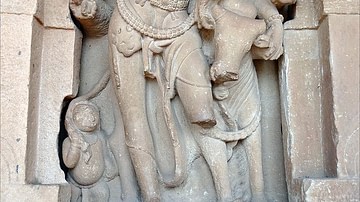
Definition
Shiva
Shiva (Siva) is one of the most important gods in Hinduism and a member of the holy trinity (trimurti) with Brahma and Vishnu. Shiva is a complex character who may represent goodness and benevolence, and he serves as the Protector. Shiva...
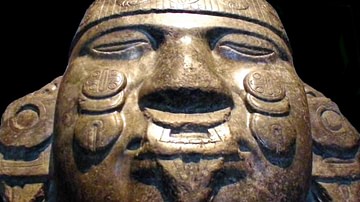
Definition
Aztec Art
The Aztec culture, centred at the capital of Tenochtitlan, dominated most of Mesoamerica in the 15th-16th centuries. With military conquest and trade expansion, the art of the Aztecs also spread, helping the Aztec civilization achieve a cultural...
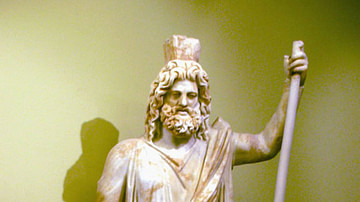
Definition
Hades
Hades was both the name of the ancient Greek god of the underworld (Roman name: Pluto) and the name of the shadowy place below the earth which was considered the final destination for the souls of the dead. Perhaps the most feared of the...
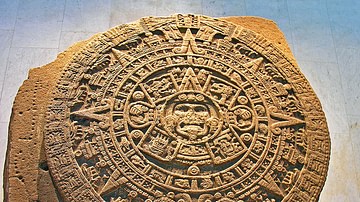
Definition
Sun Stone
The Aztec Sun Stone (or Calendar Stone) depicts the five consecutive worlds of the sun from Aztec mythology. The stone is not, therefore, in any sense a functioning calendar, but rather it is an elaborately carved solar disk, which for the...
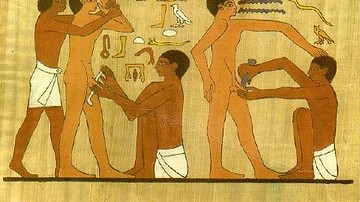
Definition
Egyptian Medicine
Medical practice in ancient Egypt was so advanced that many of their observations, policies, and commonplace procedures would not be surpassed in the west for centuries after the fall of Rome and their practices would inform both Greek and...

Definition
Ragnar Lothbrok
Ragnar Lothbrok (Old Norse Ragnarr Loðbrók, also anglicised as Ragnar Lodbrok), whose epithet means 'Hairy-breeches' or 'Shaggy-breeches', was a legendary Viking king, with Old Norse sagas, poetry, and medieval Latin sources telling of his...

Definition
Heka
Heka is the god of magic and medicine in ancient Egypt and is also the personification of magic itself. He is probably the most important god in Egyptian mythology but is often overlooked because his presence was so pervasive as to make him...
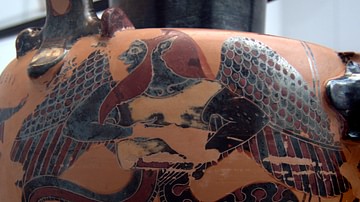
Definition
Typhon
Typhon (also Typheus) is the largest and most dreadful monster in Greek mythology. He was tall, with a brutish face, and had wings, countless snakeheads in place of hands, and a lower body made up of coiled serpents. His eyes flashed fire...